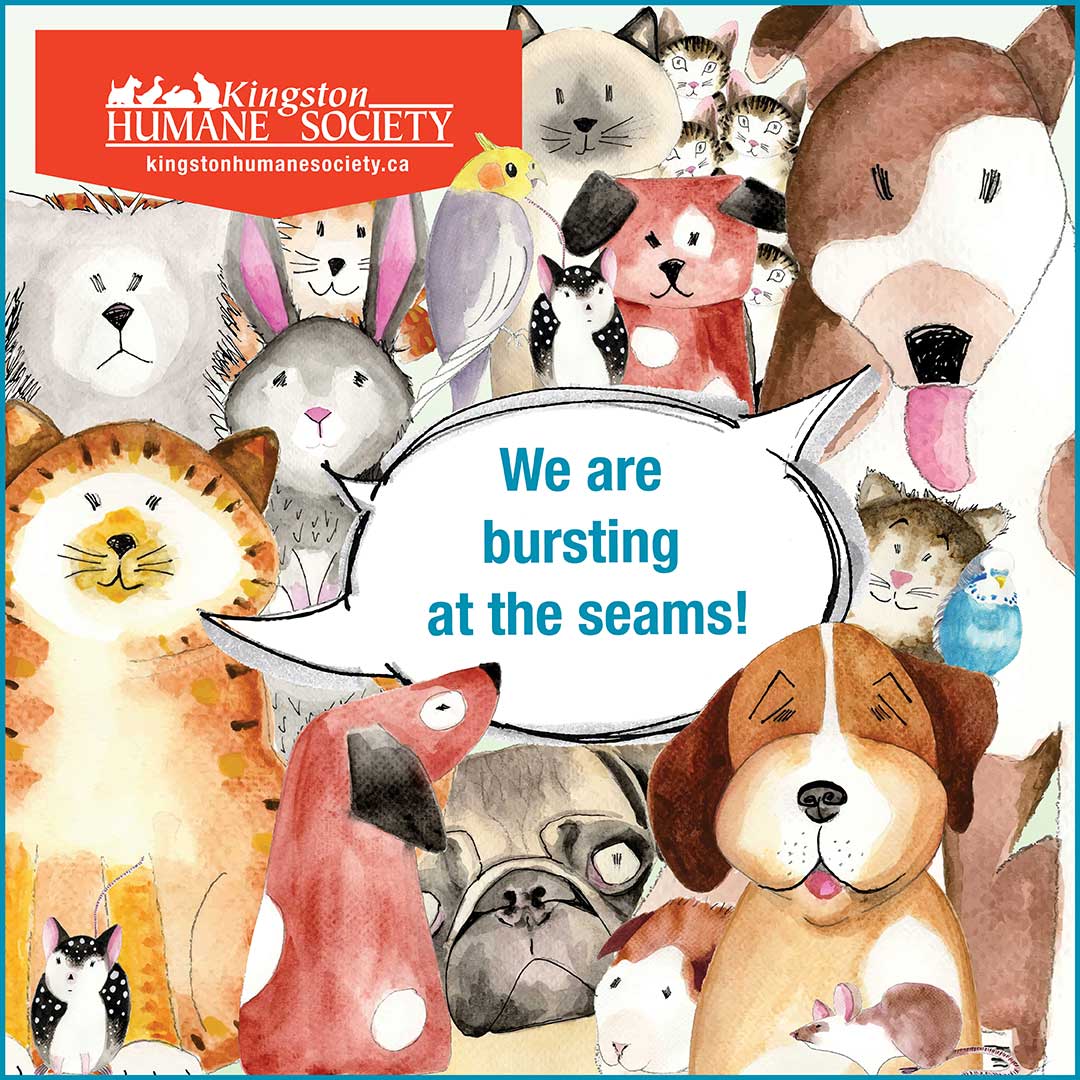Recently, in an effort to better understand the gap between the resources we have and the resources we need, the Kingston Humane Society underwent a needs assessment. During this process, the staff was interviewed in detail on how they go about their day-to-day routine. The analysis was extensive, reviewing everything from the tools used by animal care and administrative staff to the space in which the work occurs and any changes that might allow for better care and treatment options.
The assessment was done by retired local architect Bruce Downey. While Bruce has a substantial level of experience with this sort of study, he came to us with a basic understanding of how the Kingston Humane Society operates. The assessment spanned several weeks and proved to be incredibly beneficial from a number of perspectives. Throughout this time, I was in regular communication with Bruce about how things were progressing. Time and again, his overarching message to me was one of astonishment at how our animal care team, without complaint or concern for their own comfort, manages to cope.
Coping is a behaviour that comes naturally in the charitable sector; finding workarounds becomes second nature. Food banks do it, community support groups do it and grass roots fundraisers do it. At the KHS, the staff's focus is always on how they can do their very best for the animals. This might be as simple as re-purposing blankets as curtains so animals that are showing symptoms of anxiety or fear can feel safe. Or, it could be as significant as sharing your bathroom with small animals for months at a time because the rabbits and guinea pigs that were surrendered don't have any other suitable space within the building. Whatever coping behaviour is required, it is instinctual and it is rarely, if ever, accompanied by a second thought for staff comfort. In fact, even when they were directly questioned about what might make their jobs easier, the first response by our team members was to reject personal amenities in favour of gadgets or practices that would make life easier for our animals. Only when the staff was assured that new methods or devices would prioritize animal health and welfare, would they even consider something that might make their work less demanding.
In addition to makeshift solutions, the other coping mechanism we all engage in is financial prudence. The perfect example of this is our meeting room. It's also our lunch room and our staff training room and yet another small animal sanctuary; currently home to a couple of rats and two lovebirds. Recently, I brought forward the idea that we should probably replace the chairs which are variously broken or so worn that pieces of the fabric flutter to the floor in flurries of vinyl "snow". When I noted that new chairs might cost $5,000-$6,000, the conversation quickly turned to where that money could be directed to improve life for the animals while they're in our care. So, for now, the chair purchase is on hold.
Sometimes I'm able to convince the staff that buying new, ergonomic tools for surgery or replacing worn and damaged laboratory items will help them help the animals. However, more often than not, they just keep moving forward with the existing resources because anything else might detract from the best care possible for the animals.
Sometimes we get so focused on the task at hand and so overwhelmed by working at 160 or 170 percent of our capacity that we lose sight of the methods we use to get things done. We just do them by whatever means necessary and with whatever tools we can muster together. I want to thank Bruce Downey for taking the time to sit with each of our teams and for having the patience to truly understand what it is they do. Most importantly I want to thank him for shining the spotlight on the people that truly make a difference; the compassionate, caring and ultimately selfless women and men whose only goal is to treat, heal and rehome the abused, neglected and abandoned animals of Eastern Ontario.
You guys are the best and every day, I consider myself lucky to know you.


